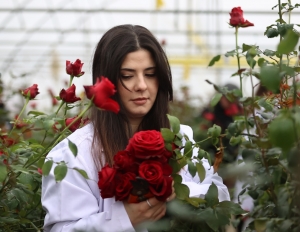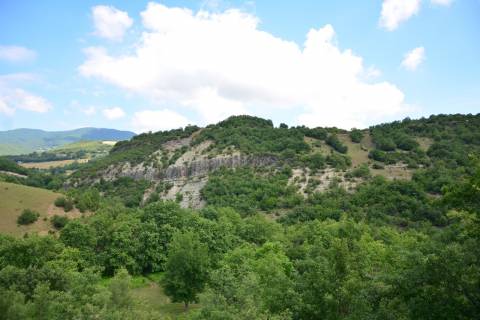Black Sea’s Anchovy Waste Transformed into High-Value Eco-Friendly Fertilizer at OMU
OMU Faculty of Agriculture Member Dr. Mehmet Tütüncü:
- "The results we have achieved are encouraging. Vase life is a critical quality parameter, especially for roses. We observed that extending vase life significantly influences plant growth and development."
The project titled "The Use of Anchovy Waste Hydrolysates as Bioactivators in Cut Ornamental Plant Cultivation," conducted by the Department of Horticulture at Ondokuz Mayıs University's (OMU) Faculty of Agriculture, has yielded successful results. The Scientific and Technological Research Council of Turkey (TÜBİTAK) has deemed the project worthy of support.
As part of OMU’s research university vision, the project converted waste from fish processing facilities into bio-fertilizers, which were then used in the university's soilless flower cultivation greenhouses.
Anchovy Waste Benefits the Environment and Agriculture
The project leader, Dr. Mehmet Tütüncü from the Department of Ornamental Plant Cultivation and Breeding at OMU’s Faculty of Agriculture, stated that fish waste has been used as fertilizer since ancient times. Highlighting the prevalence of fish factories in the Black Sea region, Tütüncü noted, “Anchovy is the most commonly produced fish in the region. However, 50-55% of the catch results in waste. Not all of this waste can be disposed of. We aim to utilize this waste to develop a product that benefits both the environment and our farmers.”
R&D Enhances Agricultural Quality
Dr. Tütüncü shared that the bio-fertilizer produced from anchovy waste significantly improved the quality of roses, stating, “The results we have obtained so far are outstanding. Vase life is a crucial quality parameter for roses, and we observed that extending vase life greatly enhances plant growth and development.”
He added that the roses grown using the bio-fertilizer are not currently for sale, but once testing is complete, efforts will be made to commercialize the product for widespread use in agricultural production.
OMU Stands Out with Eco-Friendly Projects
Ondokuz Mayıs University's focus on research and development facilitates realizing environmentally friendly projects. With this TÜBİTAK-supported project, OMU aims to promote sustainability in agricultural production while utilizing fish waste to prevent environmental pollution.



















